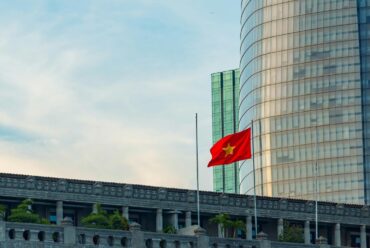Asset Recovery in Vietnam: Legal Options for Creditors
For many creditors, the frustration of securing a court judgment only to find the debtor’s assets hidden, transferred, or dissipated is all too familiar. In Vietnam, these challenges are amplified by jurisdictional nuances, procedural hurdles, and limited access to financial transparency. Despite holding valid claims or enforceable awards, many creditors find themselves navigating a maze of legal complexity in their pursuit of recovery. This includes domestic and foreign creditors facing evasive debtors, procedural ambiguity, and a lack of centralized transparency within Vietnam’s enforcement ecosystem.
This article breaks down the critical legal mechanisms, timelines, risks, and strategic insights necessary for maximizing the chances of successful asset recovery in Vietnam.
When Does Asset Recovery Become Necessary?
Asset recovery becomes necessary when debtors refuse to comply with contractual obligations or seek to evade responsibility after a court judgment. Common scenarios include:
- Breach of loan or trade agreements
- Fraudulent transfers to third parties
- Non-performance in joint ventures or shareholder disputes
- Insolvency or bankruptcy filings to avoid repayment
The parties seeking recovery typically include:
- Commercial banks and lenders
- Foreign investors in M&A or JV disputes
- Suppliers and contractors
- Private equity firms and minority shareholders
Legal Framework Governing Asset Recovery
Vietnam’s legal system offers several statutes that empower creditors to pursue recovery:
- Civil Code: Governs obligations, contracts, damages, and compensation.
- Civil Procedure Code: Lays out litigation procedures and trial rules.
- Law on Enforcement of Civil Judgments: Regulates how court rulings and arbitration awards are executed.
It is important to distinguish:
- Civil judgments are issued by courts following a lawsuit.
- Arbitral awards come from commercial arbitration bodies and may require recognition before enforcement.
What Types of Assets Can Be Recovered in Vietnam?
Creditors in Vietnam can pursue a wide range of debtor assets, including:
- Real estate (land use rights, houses, warehouses)
- Vehicles and machinery
- Bank accounts and deposits
- Shares and equity in companies
- Receivables and business income streams
Challenging cases may involve:
- Assets held under nominee names
- Transfers to family members or third parties
Certain personal or household items may be protected or exempt from enforcement under Vietnamese law.
Legal Options for Creditors in Vietnam
1. Civil Lawsuits
The starting point for most creditors is a civil lawsuit in Vietnamese courts for breach of contract or debt recovery. A valid contract and proof of default are essential.
2. Judgment Enforcement
Once a judgment is obtained, creditors can petition the Civil Judgment Enforcement Department (CJED) to begin asset seizure and liquidation. This includes bank garnishments, property auctions, and revenue seizures.
3. Asset Tracing
If the debtor’s assets are unknown, courts may assist in the tracing process, which can include:
- Subpoenas to banks or registries
- Discovery of ownership structures
- Legal use of private investigators for due diligence
4. Freezing and Seizure Orders (Interim Relief)
Vietnamese law allows preliminary injunctions to secure assets before or during litigation. These include:
- Freezing bank accounts
- Blocking the sale of real estate
- Seizing movable assets like vehicles
These are powerful tools that prevent asset dissipation.
5. Criminal Complaints
In cases involving fraudulent conduct or willful concealment of assets, criminal law may apply. Acts such as asset stripping, forged documents, or fraudulent transfers may constitute crimes like embezzlement or fraud.
Timeline for Asset Recovery Proceedings
Recovering assets in Vietnam requires a strategic and timely approach. While every case is different, the typical timelines include:
- Civil lawsuits: Generally take 6–12 months, though more complex disputes (especially those involving foreign elements or contested contracts) may extend beyond a year.
- Judgment enforcement: Can last anywhere from 1 to 6 months depending on factors such as the debtor’s cooperation, the availability and type of assets, and any appeals or procedural challenges.
- Urgent measures (freezing orders): These can be granted within a matter of days if the creditor can demonstrate a high risk of asset dissipation and provide adequate security for potential losses to the debtor.
Delays are common if the court’s docket is overloaded or if enforcement authorities face obstacles in locating and accessing assets.
Challenges in Asset Recovery
Despite the legal frameworks in place, creditors frequently encounter significant barriers:
- Asset concealment: Debtors often shift ownership to relatives, shell companies, or nominee shareholders to avoid seizure.
- Enforcement inertia: Local civil judgment enforcement officials may lack the resources, incentives, or urgency to act swiftly.
- Fragmented information systems: Access to land registries, bank records, or corporate ownership details may be limited or outdated.
- Legal loopholes: Certain exemptions allow debtors to shield personal items or delay proceedings through appeals or bankruptcy declarations.
- Cross-border complexity: When assets are held abroad or the debtor is a foreign national, recovery may involve coordination with foreign courts or recognition procedures.
To overcome these issues, a tactical approach involving early asset mapping, local court familiarity, and strategic use of interim relief is crucial.
How Insolvency Affects Asset Recovery
When a debtor enters bankruptcy, Vietnam’s insolvency law governs the distribution of assets.
- Creditors must register their claims with the court-appointed administrator.
- Priority is given to secured creditors, followed by employees, taxes, and then unsecured creditors.
- Post-bankruptcy, recovery may be limited and contingent on asset liquidation.
Related article: Corporate Insolvency in Vietnam: Legal Framework and Business Implications
Foreign Judgments and Cross-Border Recovery
Enforcing Foreign Court Judgments
- Vietnam only enforces foreign judgments if a bilateral treaty or reciprocity agreement exists.
- Creditors must apply to Vietnamese courts for recognition and enforcement.
Enforcing Arbitral Awards
- Vietnam is a signatory to the New York Convention, allowing enforcement of foreign arbitration awards.
- Courts will assess procedural fairness and public policy compliance before granting the recognition.
Conclusion
Effective asset recovery in Vietnam requires a proactive, informed approach grounded in a deep understanding of Vietnamese law. From civil litigation to criminal complaints and cross-border enforcement, creditors must navigate procedural complexities while acting swiftly to preserve value.
Le & Tran is recognized as a leader in Vietnam’s legal landscape, earning praise from top legal publications like Chambers, Legal500, and Benchmark Litigation, as well as being highly recommended by AmCham Vietnam and the US Consulate. Our top-ranked Litigation Lawyers are known for delivering practical and strategic solutions that protect your rights and interests. Whether navigating complex disputes or resolving sensitive legal challenges, we’re here to guide you every step of the way with precision and professionalism. For professional support in asset recovery in Vietnam, contact us at info@letranlaw.com.








